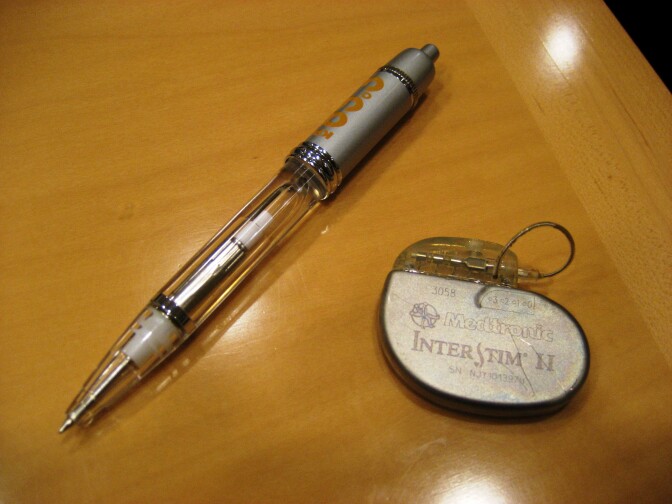This story is free to read because readers choose to support LAist. If you find value in independent local reporting, make a donation to power our newsroom today.
This archival content was originally written for and published on KPCC.org. Keep in mind that links and images may no longer work — and references may be outdated.
Bladder Pacemaker, Part 2 - Nerve stimulation can regulate bladder

A device that works much like a heart pacemaker is helping out people with certain bladder problems. In this second installment in a series of reports, we take a quick look at how it's implanted.
If you’ve ever had to rush to the bathroom every few minutes because of a bladder infection, you know what life is like for people with overactive bladders, or “urge incontinence.” Your life starts revolving around your bladder until you might not have any life outside your home.
UCLA urologist Dr. Larissa Rodriguez says a small implant called a “bladder pacemaker” is changing that.
"The bladder pacemaker is a way of stimulating the nerves that go to the bladder," she says. "We don’t quite know how it works, but is a very similar device as to a heart pacemaker. So it has a similar battery and a similar electrode. The electrodes go near the nerves that go to the bladder."
Those nerves are at the base of your spine, in an area known as the sacrum.
A pager-sized battery unit is implanted in your backside, where you can’t see or feel it. The surgery is done with local anesthesia. Once implanted, the battery unit sends a constant pulse to the electrodes, which regulate the bladder.
But the bladder isn't the only part of the body it stimulates. We'll take a closer look at that tomorrow.







